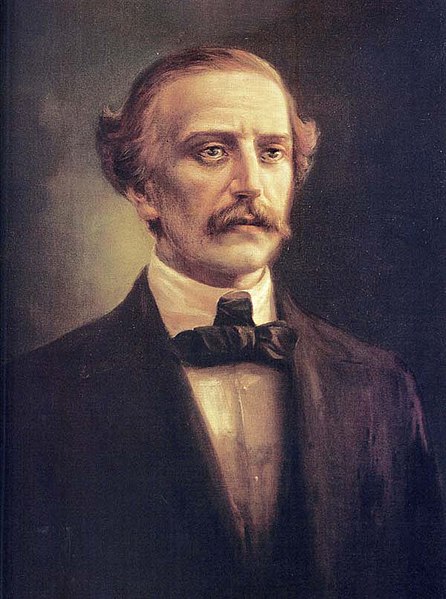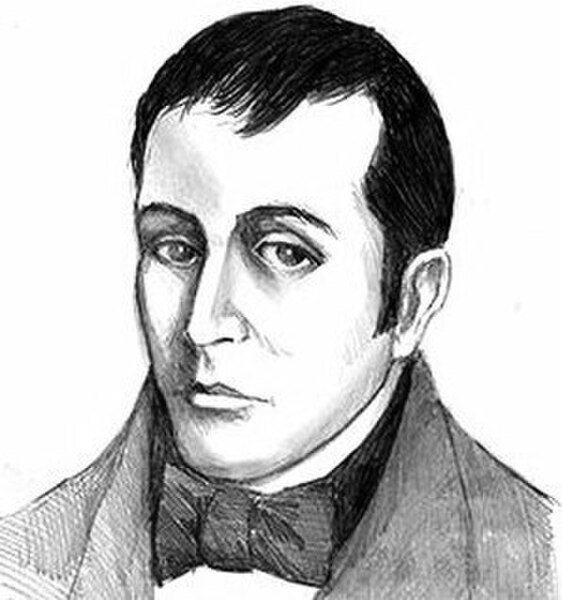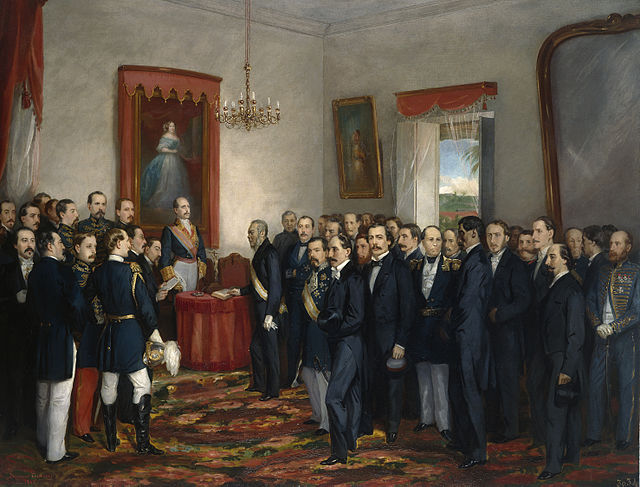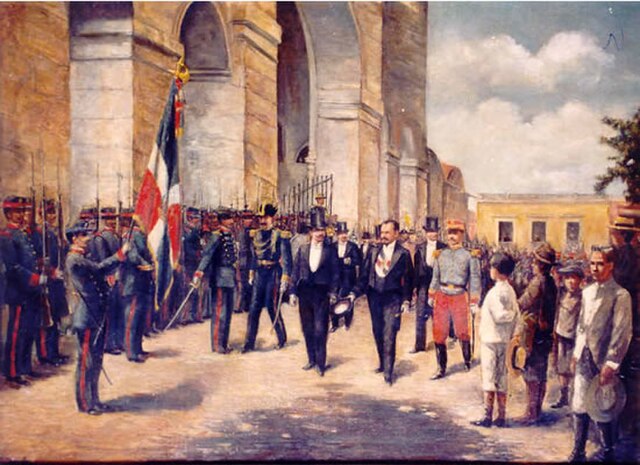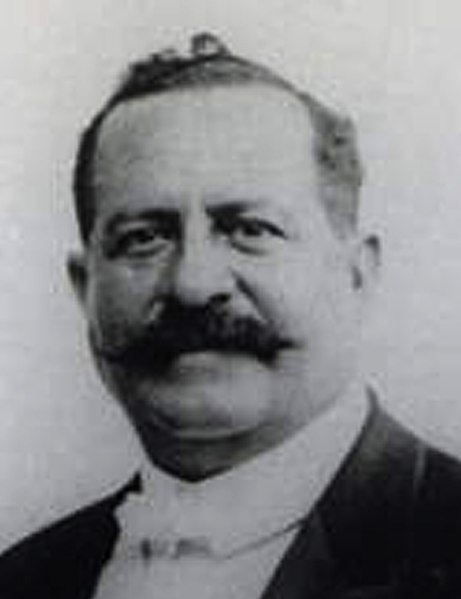Juan Pablo Duarte y Díez was a Dominican military leader, writer, activist, and nationalist politician who was the foremost of the founding fathers of the Dominican Republic and bears the title of Father of the Nation. As one of the most celebrated figures in Dominican history, Duarte is considered a folk hero and revolutionary visionary in the modern Dominican Republic, who along with military generals Ramón Matías Mella and Francisco del Rosario Sánchez, organized and promoted La Trinitaria, a secret society that eventually led to the Dominican revolt and independence from Haitian rule in 1844 and the start of the Dominican War of Independence.
Oil portrait of Juan Pablo Duarte by Dominican artist Abelardo Rodríguez Urdaneta.
Rosa Duarte
Vicente Calestino Duarte
The first movement was organized by José Núñez de Cáceres, who in turn became the first and only governor of Republic of Spanish Haiti from 1821 to 1822.
The Dominican Republic is a country on the island of Hispaniola in the Greater Antilles archipelago of the Caribbean Sea, bordered by the Atlantic Ocean to the north. It occupies the eastern five-eighths of the island, which it shares with Haiti, making Hispaniola one of only two Caribbean islands, along with Saint Martin, that is shared by two sovereign states. It is the second-largest nation in the Antilles by area at 48,671 square kilometers (18,792 sq mi), and second-largest by population, with approximately 11.4 million people in 2024, of whom approximately 3.6 million live in the metropolitan area of Santo Domingo, the capital city.
Juan Pablo Duarte, founding father of the Dominican Republic.
Pedro Santana is sworn in as governor-general of the new Spanish province.
President Alejandro Woss y Gil taking office in 1903
Ramón Cáceres

